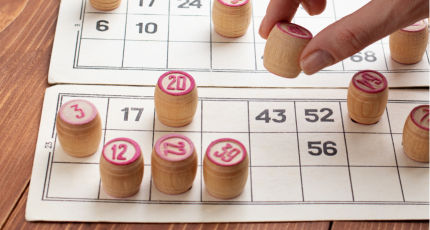
How to Choose Your Lottery Numbers: Science vs. Superstition
Introduction
From the moment you decide to buy a lottery ticket, one question inevitably follows: which numbers should you choose? Some players rely on birthdates and anniversaries, others use complex mathematical systems, and some simply let the computer decide with a quick pick. But in the quest for that life-changing jackpot, does your selection method actually matter?
This article explores the fascinating intersection of science, psychology, and superstition in lottery number selection, helping you understand the thinking behind different approaches – and perhaps giving you some new ideas for your next play.
The Mathematics of Random Selection
From a purely mathematical standpoint, all number combinations in a lottery have exactly the same probability of being drawn. In a standard 6/49 lottery, your chances of selecting the winning combination are 1 in 13,983,816 – regardless of whether you choose family birthdates, consecutive numbers, or seemingly random picks.
"Many players don't realize that each drawing is an independent event," explains Dr. Adebayo Johnson, a statistics professor at the University of Lagos. "The lottery machine has no memory of previous draws, no awareness of patterns, and certainly no concept of 'due' numbers."
This fundamental principle is why mathematicians often say that the most "scientific" approach to playing the lottery is understanding that no selection method improves your odds of winning. The only way to increase your chances is to buy more tickets with different number combinations.
Popular Number Selection Methods
Despite the mathematical reality, players continue to use various methods to select their numbers:
1. Personal Significance
The most common approach involves choosing numbers with personal meaning:
- Birthdates of family members
- Anniversary dates
- Ages of children or relatives
- House numbers
- Lucky numbers from cultural traditions
While these numbers hold special meaning, they limit selections primarily to numbers 1-31 (corresponding to dates), potentially reducing your payout if you win, as many other players use the same strategy.
2. Hot and Cold Numbers
Some players track which numbers have appeared frequently in recent draws ("hot" numbers) or have been absent for many drawings ("cold" numbers).
- Hot number strategy: Believing frequently drawn numbers will continue their "lucky streak"
- Cold number strategy: Thinking overdue numbers are "due" to appear soon
Both approaches fall into the "gambler's fallacy" – the mistaken belief that past random events influence future outcomes.
3. Mathematical Systems and Patterns
More methodical players might use:
- Choosing numbers that form geometric patterns on play slips
- Selecting numbers with equal distribution across decades (e.g., some from 1-10, some from 11-20, etc.)
- Using number theory to create what feels like a balanced set
These approaches can feel more strategic but don't actually change the odds.
4. Quick Pick (Random Selection)
Many winners simply let the lottery terminal randomly generate their numbers. This approach aligns with the mathematical reality that all combinations have equal probability.
The Psychological Comfort of Control
If the odds are identical regardless of methodology, why do so many players insist on using personal systems?
Psychologists suggest it's about perceived control. "Selecting your own numbers gives you a sense of agency in an outcome that's completely random," says psychotherapist Dr. Nkechi Okafor. "This illusion of control makes the anticipation more meaningful and enjoyable."
This psychological comfort explains why some players refuse to switch their numbers, fearing their regular selection might win right after they change.
Cultural Superstitions and Lucky Numbers
Lottery number selection is heavily influenced by cultural factors across Nigeria and beyond:
- The number 7 is considered lucky in many Western cultures
- In Chinese tradition, 8 is extremely lucky (associated with prosperity)
- The number 13 is avoided by many due to superstitions about bad luck
- In some Nigerian cultures, certain numbers hold special significance based on traditional beliefs
These cultural patterns create interesting statistical anomalies in number selection frequency, though the actual drawing remains completely random.
Strategic Approaches That Actually Matter
While no selection method improves your odds of matching the winning numbers, some strategies can potentially increase your payout if you do win:
1. Avoid Common Combinations
Selecting less commonly played number combinations won't improve your chances of winning, but it could mean sharing the jackpot with fewer people if you do win.
2. Consider All Prize Tiers
Some players strategically select numbers to maximize their chances of winning smaller prizes, rather than focusing solely on the jackpot.
3. Play Consistently
If you use personal numbers, play them consistently. Nothing is worse than seeing your regular numbers win in a drawing you skipped.
Conclusion
The science is clear: lottery drawings are random events where each number combination has exactly the same probability of being selected. No selection method gives you better odds of matching the winning numbers.
However, the way you choose your numbers can affect your potential payout (by avoiding commonly selected combinations) and, perhaps more importantly, your enjoyment of the game. For many players, the ritual of selecting meaningful numbers adds value to the lottery experience beyond the mathematical odds.
Whether you're a devoted system player or a quick-pick enthusiast, remember that lottery games should primarily be about entertainment. Play responsibly, within your budget, and enjoy the moment of possibility that comes with each ticket – regardless of how you chose those numbers.







